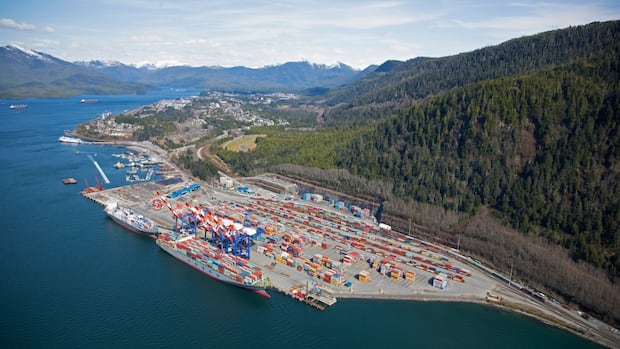
More Alberta propane flowing to Asian markets as trade relationship with U.S. falters
CBC
Canada's propane exports reached record highs last year, with more Alberta-produced propane than ever before arriving in Asia.
Last year, more than 40 per cent of Canadian propane exports flowed across the Pacific Ocean, with Japan and South Korea emerging as key markets, according to a recent analysis from the U.S. Energy Information Agency (EIA).
All of it travels via two new marine export terminals at the Port of Prince Rupert on the B.C. north coast — one on Ridley Island operated by Calgary-based AltaGas and another on Watson Island operated by Calgary-based Pembina.
"With the discussion and dynamic playing out between the U.S. and Canada, and the risk of tariffs, it's highlighted the importance of Canada's ports," said Shaun Stevenson, president and CEO of the Prince Rupert Port Authority.
"Certainly, we've played a big role in Alberta's trade agenda over the past decades, and that role is increasing."
Overseas propane exports from Canada have increased every year since 2019, per the EIA analysis, and grew by 10 per cent from 2023 to 2024.
The price of propane is also typically much higher in Asian markets compared to the U.S., meaning Canadian producers make more by sending it overseas.
Until 2018, Canada sent all of its propane exports to the United States, said the EIA. But last year, only about 58 per cent of Canada's propane exports went south of the border.
As the flow of Alberta-produced propane swells across the Pacific, the province's energy industry faces historic uncertainty in dealing with American partners.
U.S. President Donald Trump briefly imposed a 10 per cent tariff on Canadian energy exports in March but then scrapped the policy.
Energy exports to the U.S. are not currently subject to tariffs, so long as they qualify under the Canada-U.S.-Mexico Agreement (CUSMA) for preferential treatment.
Still, the uncertainty created by Trump's global trade war is affecting decision-making in the sector, according to Richard Masson with the University of Calgary School of Public Policy.
"Right now, there's so much uncertainty that pretty much everybody is going to be saying. 'I'm not going to proceed with any new investment that I don't have to make,'" he said.
"Anybody who has shareholders, bondholders, government investors needs to be able to say to them, 'the reason we're moving forward is because I think I'm going to make money doing this.' And that is not something anybody really has any comfort in right now."





















 Run 3 Space | Play Space Running Game
Run 3 Space | Play Space Running Game Traffic Jam 3D | Online Racing Game
Traffic Jam 3D | Online Racing Game Duck Hunt | Play Old Classic Game
Duck Hunt | Play Old Classic Game











